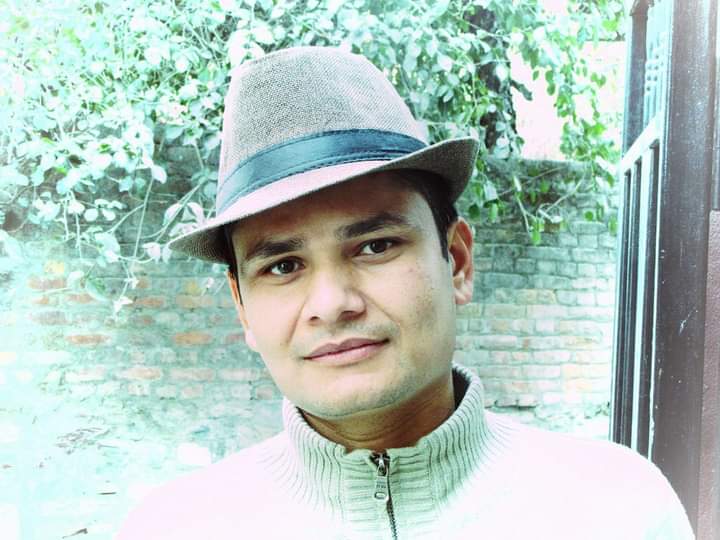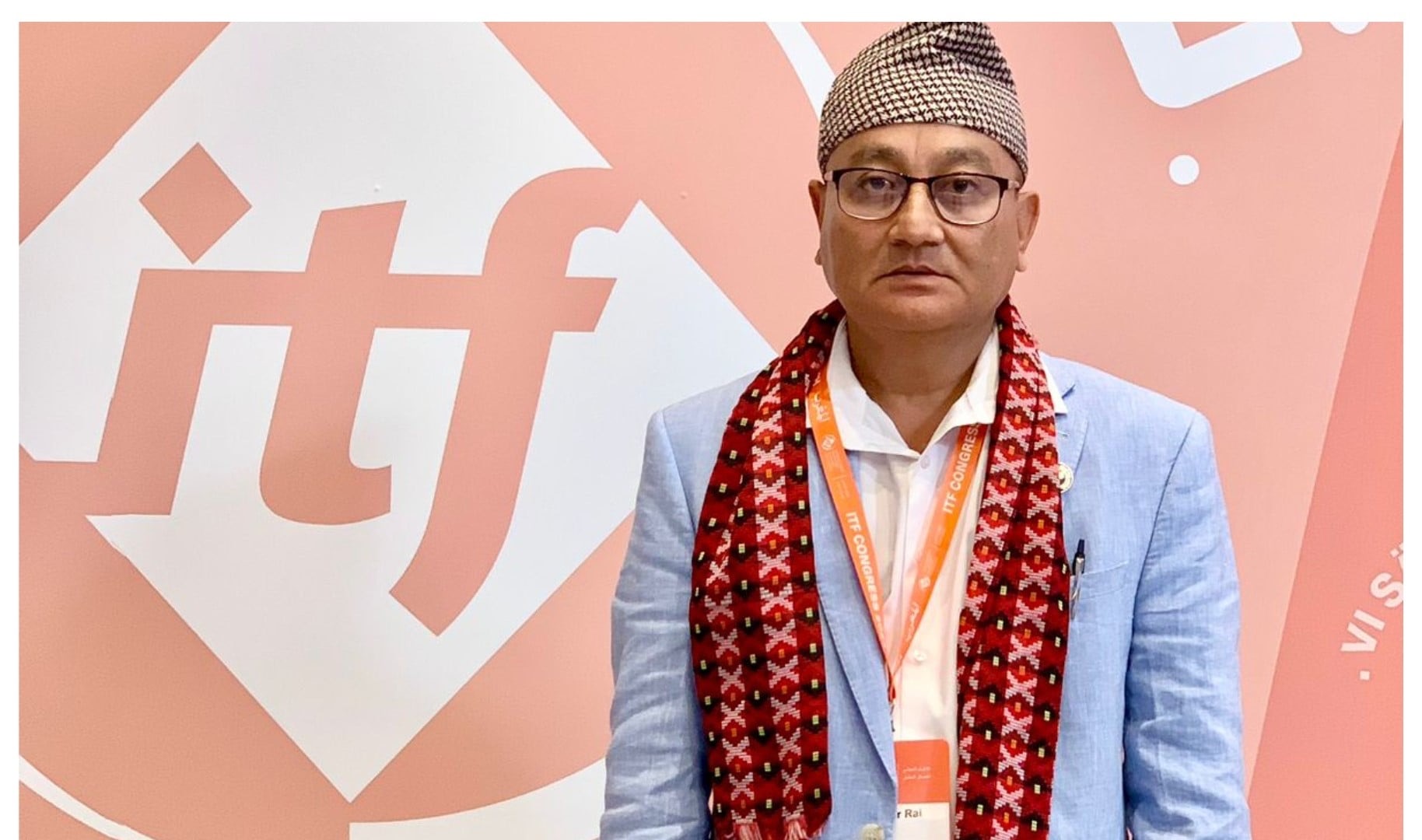Pathological Politics: A Crisis of Civility in Nepali Politics and Beyond

By Uttam Poudel
“If you do not take an interest in the affairs of your government
Then you are doomed to live under the rule of fools.” –Plato
The above mind–boggling quotation by Greek thinker, Plato motivates the conscious minds to keep their eyes in the affairs of the government so that it will not deviate from its ideas and ideals. It is the duty of sensitized citizens, more particularly in democratic countries, to discourage the leaders from sanitizing their foremost duties and responsibilities for the collective interest. However, this has been a far cry in Nepal. It is because one can hardly find independent citizens herein. They are simply the supporters or cadres of either of the so–called political parties. The seemingly conscious and so–called members of civil societytoo, are not exception with this curse. This has galvanized the Nepali politics to be pathological one.
Politics turns out to be pathological when it is derailed from its fundamental ends such as serving the citizens, doing things for collective interests, and being committed to directing the nation to the road to prosperity. Since there has been lacking such properties in its modus operandi, Nepali politics is infected, and that there is a growing tendencies among people to be disenchanted towards politics and political parties. This is not a good symptom for the nation. After all, it is the politics that builds the nation with its rewarding policies and productive practices targeting the common goods.
The crippling and coercive effect of pathological politicscan be seen in Nepali academia, where people are appointed not on the theory of meritocracy but on the theory of political ideologies. The students too, are so strongly guided by the shadow of political ideologies that they tend to protest and lockout academic institutions for their vested interest. The daily activities have been halted at the oldest university of Nepal, Tribhuvan University at present due to lockout of the office of the Vice Chancellor by the sister organizations of the different political parties. There are host of examples of students involving in anti academic activities like bullying over professors and putting black smear on the face of high profiled person of the academia. Most of the universities in Nepal are undergoing same plight and predicament in the name of the protest of sister organizations of different political parties.
We cannot simply blame students alone. The professors too, are the passengers of the same boat. Leaving few exceptional cases, most of the university teachers are doing politics putting their academic duties and responsibilitiessuch as teaching, doing research, designing curriculum, etc. at bay. Curriculum of universities or colleges should be of such standard that it could impart both knowledge and skills applied in day-to-day life. However, these are lacking in school and college curriculum. Perhaps, Nepal is one and only country in the globe where curriculum is designed by formulating a team having members with different political ideologies. Hence, even the curriculum is infected by pathological politics. What can one expect from such curriculum having contents of diverse political ideologies rather than the things really required for the students, the society, and the nation at large?
It will not be exaggeration to say that some teachers at the university where I teach are so infected by political ideology that they see the others (teachers from different ideologies) with suspicious eyes as if they are different people from different terrains. They are even hesitant to communicate with them freely and frankly. Forget about the minimum courtesy among them. They hardly debate, discuss and deliver things to uplift the status of the institutions they involve in. Whoever comes up with new vision and mission, they are either ex–communicated or regarded as misfit among the group. The same situation is there in almost all universities. What can be more painfully pathological than this?
The sparks of pathological politics is not an exception even in bureaucracy, the permanent government of the country. It is infected by unionism. Under the rubric of trade unions, it not only delays in service deliveries but at times, denies to forward policy documents or so, consequently, things are on “pending” for a longtime. Aside from that, in most cases, government employees holding the ideology of ruling party get promoted, transferred into comfort zones or enjoy the privileges like foreign trips, study leave, political appointments to name the few. These tendencies have disheartened and discouraged the new generation to be in the system of Public Service Commission leading to the intense possibilities of brain drain.
The most horrible situation is that Judiciary System of Nepal too, is contaminated by pathological politics. There are host of examples in which, due the nexus between politics and judiciary, justice deliveries have been delayed. The naked dance of political ideologies in Judiciary System was visible during the prolonged protest of lawyers and advocates on the issue of Chief Justice, Cholendra SJB Rana. During the protest, the cases of common people remained pending for several days. Such cases of common people were the victims of Red Tapism. Still commoners have big doubt on Judiciary System of Nepal for its fair delivery of justice.
Almost all state–sponsored institutions and privately owned institutions have been infected by pathological politics. The tycoons of private organizations directly influence the ruling party by giving megabucks and appropriate the policies and plans in their favor. The owners of the most of the private institutions hold the ideology of either of the political parties, and are doing activities for the promotion of their parties. How can one expect fair and free service from such organizations? They are not running the organizations but are disseminating political ideologies under the rhetoric of “service to people.”
The pathological politics in almost all sectors in Nepal has taught people nothing but debauchery, fraud, treason, manhandling, propagandist enterprises, betrayal, aggression, intolerance, violence and what not and what not. This has made good people to see politics and political party with negative mindset. There is a growing trend ofnegative attitude towards politics. Politics in Nepal has become such platform where nobody with money dares to jump. Politics has been no more social services in Nepal, rather a lucrative platform where only tricksters can adjust. The election is won by money and muscle not by mind and morality.
The politics, in Nepal, is being pathological also because of the lack of civility among parties and the leaders. Formal politeness and courtesy in behavior or speech is civility. However, it seems as if our leaders do not know the basics of civility. They lack decorum and diplomacy in communication. They even do not hesitate to use depreciatory words for other political parties and leaders. Due to the fervor of local election, leaders of most of the political parties are in rallying cry in their constituencies. In their election campaigns, it is seen that they are blaming other parties and leaders using derogatory terms. They are seen to be in the campaign of deification of “self” and demonization of the “others”. Instead of bring the voters home about the manifesto of their respective parties in general, and their plans, policies and programs in particular, the leaders are killing most of their time blaming other political parties by using uncomplimentary words. This growing malpractice is one of the pathological dimensions of Nepali politics at present.
The notion of respect to difference and sense of tolerance has been hibernated from Nepali politics. Political ideologies have penetrated Nepali society in such a way that they have divided the hearts of the people. Instead of being holistically Nepali, they are the supporters, voters, cadres and well-wishers of different political parties. This has brought division, disintegration and disharmony among people. People have forgotten to show courtesy with expected behaviors with other people from diverse views and ideologies. The hostile relationship is ever growing among people with different ideologies. The sense of mannerism and civility is beyond the boundaries of Nepali politics. As the dictum goes, “as you sow, so you reap”, the top leaders have taught their cadres to insult, disgrace, mock, defame, scandalize, if possible to attack people from different ideologies. And these are seen in election campaign rallies these days. It is very pertinent to mention Mark Twain, a prolific American writer and his quip, “politicians and diapers must be changed often, and for the same reason.” When politicians fail to meet their assertion and action, they must be discarded.
The right time is just round the corner. As local and general elections are soon to come in Nepal, people are expected to be wise and intelligent enough to select their ideal representatives by executing their voting rights. They are expected not to fall prey of their sugar-quoted languages and tall claims. They should cast their votes in favor ofthose candidates who could release Nepali society from pathological politics and teach the importance of civility among people. They must select candidates with mission and vision to drive the nation to the pinnacle of prosperity. They should select those candidates who can move common people from shame to fame, insult to result, sorry to glory, disgrace to grace, labor to favor, and of course,from mockery to victory. It is up to you: select them, send them and see them in your vicinity.
The writer is an Assistant Professor at Balmeeki Campus, Nepal Sanskrit University, Kathmandu, Nepal



















Facebook Comments